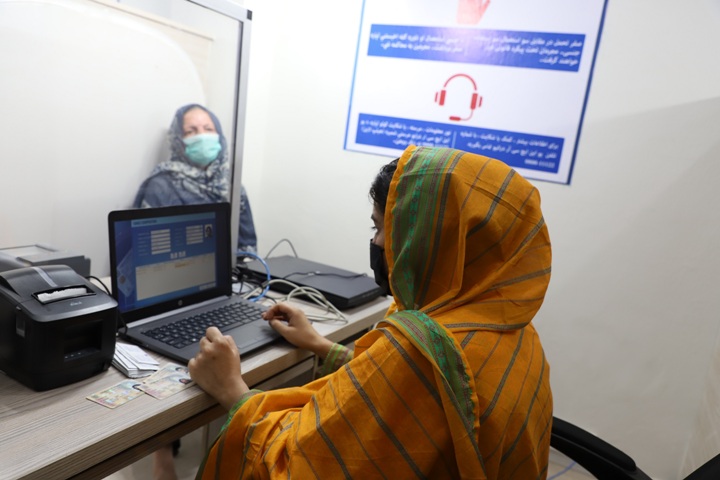Crisis at the Borders: Over 1.4 Million Afghans Return Amid Growing Uncertainty
The situation has rapidly deteriorated in recent weeks, placing enormous strain on Afghanistan’s already fragile infrastructure and overwhelming UNHCR’s capacity to respond.

- Country:
- Afghanistan
The United Nations High Commissioner for Refugees (UNHCR) has issued a dire warning about the escalating humanitarian crisis unfolding across Afghanistan’s borders. As of July 2025, more than 1.4 million Afghans have returned or been forcibly returned to the country, with over 1 million arriving from Iran alone. The situation has rapidly deteriorated in recent weeks, placing enormous strain on Afghanistan’s already fragile infrastructure and overwhelming UNHCR’s capacity to respond.
This surge includes both voluntary and involuntary returns, occurring in the context of intensifying pressure in neighboring countries, rising deportations, and a backdrop of longstanding instability within Afghanistan.
Record-Breaking Influx from Iran and Pakistan
UNHCR has reported a sharp spike in daily returns from Iran since 13 June. The situation reached a peak on 1 July, when over 43,000 individuals crossed the border in a single day—a dramatic increase compared to the January–June average of 5,000 daily arrivals.
Pakistan has also seen escalating returns, with nearly 150,000 Afghans departing in April alone. Many of these returns are concentrated in limited geographic areas of Afghanistan, further straining local services and heightening tensions within communities already stretched thin.
A Complex Protection Emergency
UNHCR describes the crisis as a “complex protection emergency”. Many Afghans arriving at the borders have shared accounts suggesting that their returns were not voluntary. Deportations have been accompanied by harassment, intimidation, and fear. In some cases, people left preemptively after witnessing others being forcibly removed or detained.
The refugee agency warns that many of these returnees are returning to a homeland they barely know, having lived for years or decades in neighboring countries. Once back in Afghanistan, they face severe challenges accessing basic needs:
-
Housing and shelter in areas already facing displacement from internal conflict
-
Healthcare and education, particularly for women and girls
-
Legal documentation, essential for civil registration, employment, and services
For Afghan women and girls, return brings heightened danger. They must contend with severe gender-based restrictions, including limited freedom of movement, lack of access to education, and heightened vulnerability to exploitation.
UNHCR’s Humanitarian Response at Breaking Point
UNHCR teams are on the frontlines at key border crossings, providing vital support. Their response includes:
-
Distribution of hot meals, water, and hygiene kits
-
Emergency financial assistance
-
Deployment of additional field staff to overwhelmed reception areas
However, the agency warns that without immediate and substantial financial support, this emergency aid will only last a few more weeks. UNHCR’s 2025 response plan for Afghanistan requires $216 million, of which only 28% has been funded to date.
UNHCR spokespersons have emphasized that this level of underfunding is unsustainable given the scale of need. “We are seeing scenes of exhaustion, hunger, and fear at the borders. We cannot continue this level of assistance without donor action.”
Regional Policies Fueling the Crisis
UNHCR highlighted a worrying trend in regional policies, where host countries have issued mass return orders targeting Afghan refugees. These include:
-
Tightened deadlines for undocumented Afghans to leave
-
Mass detentions and deportations, particularly in urban centers
-
Deteriorating living conditions and legal protections for Afghan communities in exile
These forced returns risk violating international principles of non-refoulement, which prohibit the return of individuals to countries where they face serious threats to their life or freedom.
Call for Voluntary, Safe, and Dignified Returns
The refugee agency has appealed to regional governments to uphold international standards and ensure that any returns are:
-
Voluntary, based on informed decisions
-
Safe, with protection from persecution or violence
-
Dignified, respecting the rights and humanity of each individual
UNHCR is also calling for international solidarity to prevent the Afghan crisis from spiraling further. Without intervention, the agency warns of ripple effects including regional instability and increased onward migration toward Europe.
A Plea to the Global Community
UNHCR’s final message is unequivocal: the world cannot afford to look away. The Afghan people—many of whom are returning involuntarily to a country shattered by war, economic collapse, and systemic repression—need urgent help.
“The global community must stand with the Afghan people at this pivotal time,” UNHCR stated. “There is still time to act, to restore hope, and to give returning Afghans a fighting chance for a safe and dignified future.”








